South Africa's Lockdown Through the Eyes of a Nature Guide
"This is a true story that comes from the heart. I sat staring at the computer screen wondering how I was going to say what I wanted to say so people will hear it. This is not just a story about the impact of this virus on my life and my family's life and the tears I've shed over what we've lost. It's also about the tears I've shed for my colleagues. For my friends who are sitting in a shack somewhere watching their starving dogs scavenge for something to eat. We are the wildlife guides who used to take people into the African bush so they could live their dreams of going on safari." —Frank Watts in an interview with Wild Wings Safaris on 28 May 2020.
Wild Wings Safaris: "We're going to chat about your short story, “Lockdown SA: Through the Eyes of a Nature Guide” in a moment, but before we get to that, let's go back to the beginning. How did you get into guiding?"
Frank Watts: "At the age of about ten, I went on safari with my family. In those days, there were no such things as safari vehicles. You'd go to a wildlife park in your vehicle where they'd put a local guide - in our case, our guide was a big Zulu guy - in the car with you. At that time, I spoke Zulu fluently so I ended up interpreting for this big man who couldn't speak English very well. He liked me, this little white kid who could speak his language, and we had an amazing time. The Zulu guide was incredible. He could see things we couldn't. He'd point out something in the bush and describe what he was seeing in Zulu. I'd turn to my dad and say, “There's a rhino over there.” We'd look and see nothing until eventually, a rhino began walking towards us. At the end of that safari, I said to my dad, “This is what I want to do. I want to take people into the bush and show them the animals.” So basically, I was living my boyhood dream until this pandemic pulled the carpet out from underneath us."
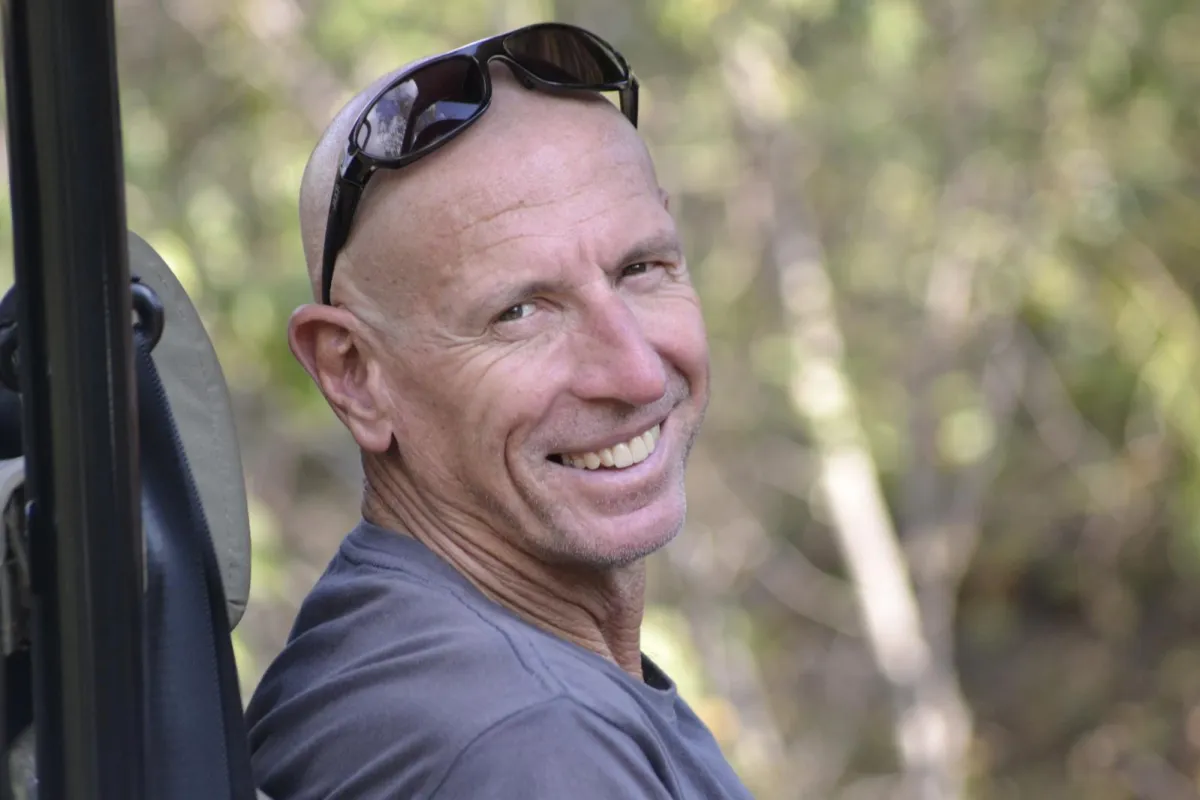
Frank Watts today
Wild Wings Safaris: "You call yourself a nature guide in the title of your short story. Not a safari guide. Is there a difference between the two?"
Frank Watts: "Not really. You know, safari is a word that's become more and more associated with wildlife. It's a word that means going on a journey. So safari guide, nature guide, it's pretty much the same thing. Nature encompasses the whole thing, the big picture. When you talk about safari, people think of wild animals but the more you do this job, the more you want them to see beyond the wild animals. It's about beautiful landscapes. It's about the shape of the clouds in the African sky."
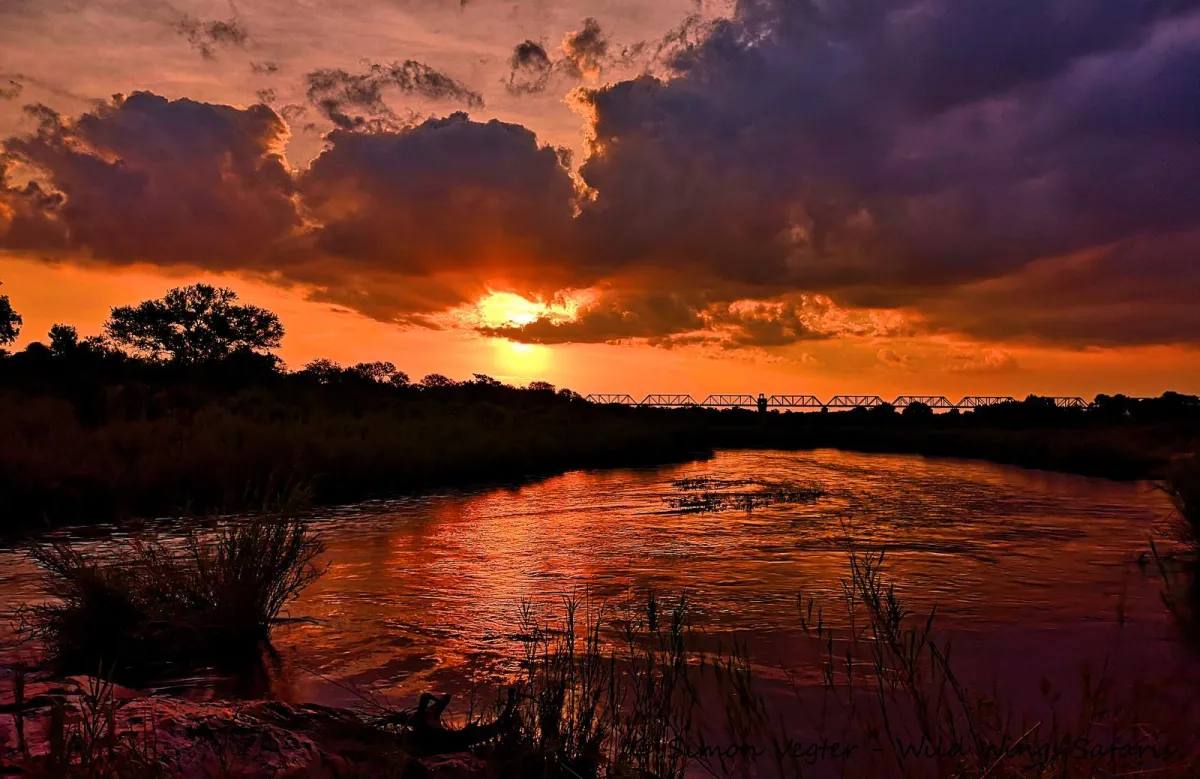
Going on safari is about going on an African journey
Wild Wings Safaris: "You were motivated by a particular experience as a child to get into guiding. What about your colleagues? What motivated them? It can't be money because safari guiding doesn't exactly pay well."
Frank Watts: "It's not the money. I think, ironically enough, a lot of guys that become nature guides are running away from people. They want to be out there in the bush, surrounded by nature and Africa's wildlife. And yet you find yourself working closely with more people than most individuals living in big cities come into contact with on any given day. What motivates us is a very powerful thing. We are sharing people's dreams with them. It's very hard to explain what it's like when a cheetah mother walks across your path with her two baby cubs, their furry mantles sticking up like mohawks, and guests on your safari vehicle start crying. Seeing that is a big, big thing for some people. They've dreamed about going on a safari all their life and they see something like that? It's big. Being part of moments like that is what motivates us to go out there every day in the cold, in the rain, in the hot sun."
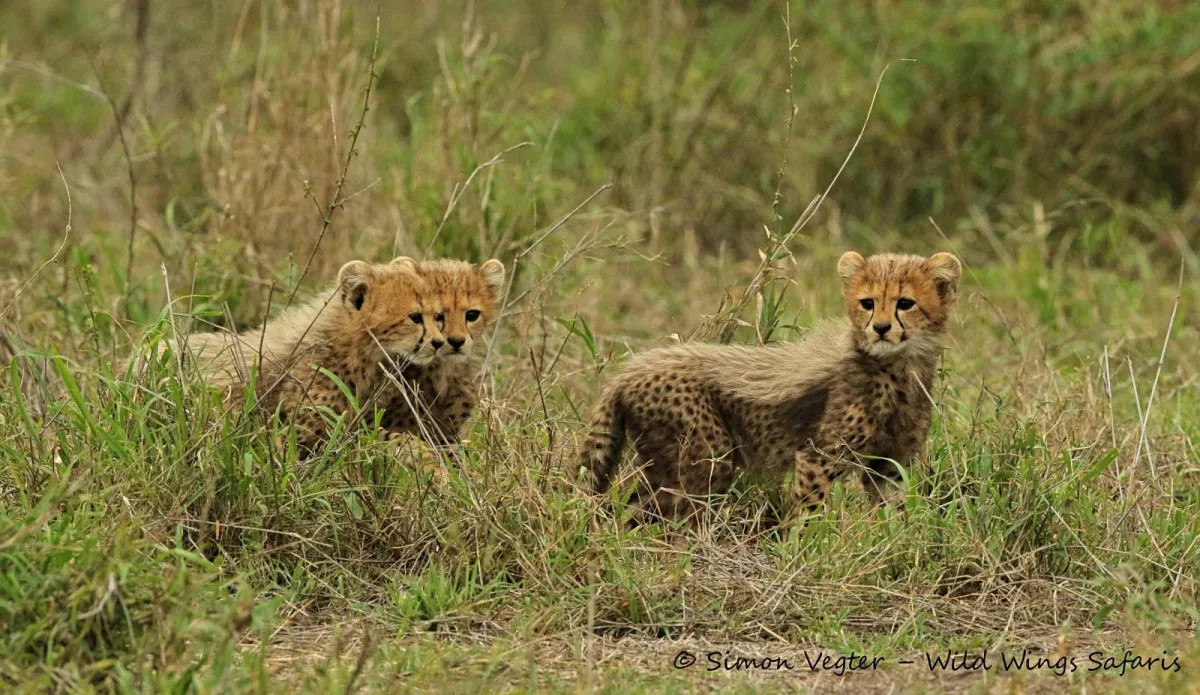
Three cheetah cubs
Wild Wings Safaris: "Having a job where you play such an integral role in making people's dreams come true is something very few people can claim to have. Are there any other memories like the one you've just talked about you'd like to share with us?"
Frank Watts: "I remember guests who'd been on four, five safaris and the one animal they hadn't seen was the African wild dog. They'd been to Kenya, Botswana, all over Africa and they came to us specifically wanting to see wild dogs because they're one of Africa's most endangered carnivores. They'd done a bit of research as to when the best time would be to see these animals which is when they're denning between May, June, July. That's when the alpha female normally has puppies. The puppies stay in the den when the rest of the pack go hunting so, while they're mostly sedentary during that time, it's unlikely you'll get to see the little ones. We spent a lot of time investigating a pack's movements and had an idea their den was near a rocky outcrop. I'll never forget it. The rocky outcrop was beautiful, it was breathtaking, and as we came around the corner, there they were. African wild dogs with their little puppies. Just playing. It was a moving thing even for me because I'd never seen little ones like that before. These tiny, little puppies. For the guests, it was huge. They'd travelled across the continent looking for wild dogs and there, right in front of them in some remote corner of Africa their dream was waiting for them. It was just amazing."
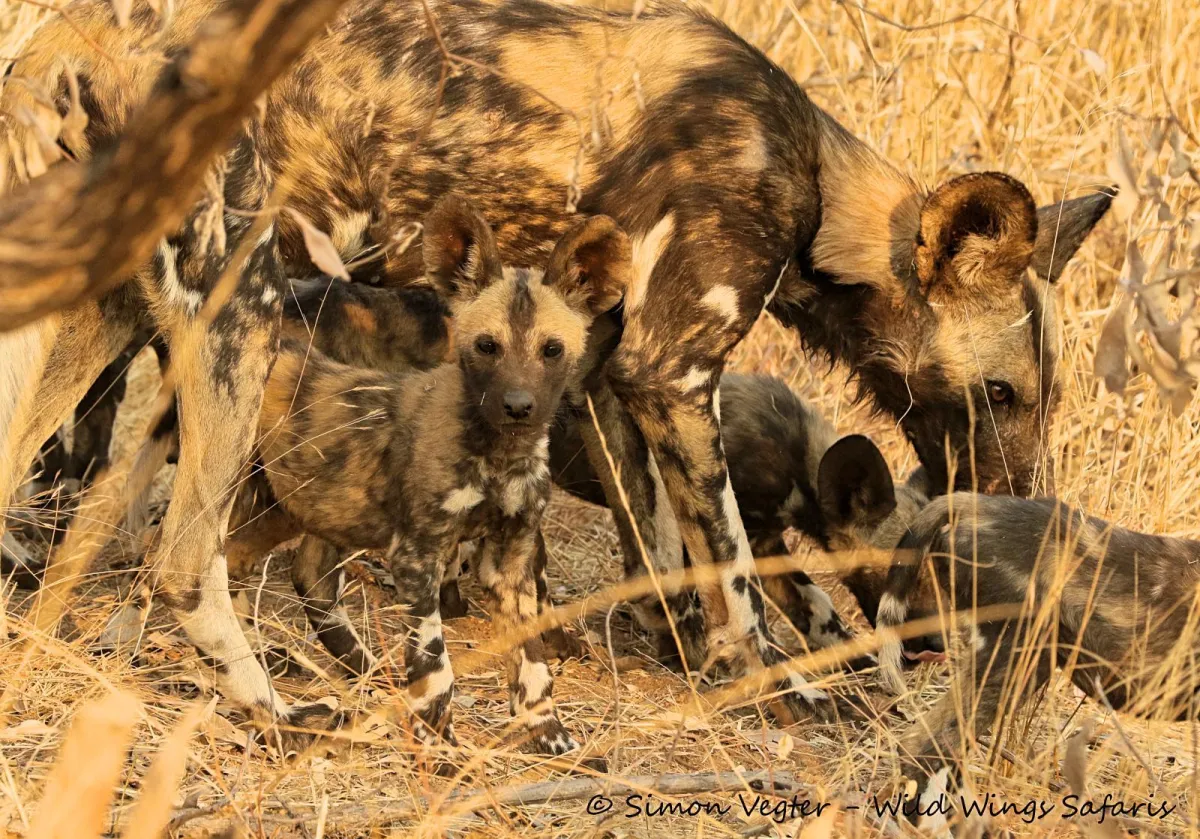
African wild dogs and their pups
Wild Wings Safaris: "In the synopsis of your story, "Lockdown SA: Through the Eyes of a Nature Guide", you write about the use of the word lockdown in terms of incarceration. Few people have picked up on that. How did you make that connection?"
Frank Watts: "In my short story, I write about my last safari before the lockdown. I was parked at this beautiful waterhole and I was thinking, "Have I ever heard that word, lockdown? Have I ever used that word?" The only time I'd ever heard that word was in movies about prisons in lockdown and I sat there imagining the sound of all these prison doors slamming shut on us. I use the word incarceration in my story and I talk about my family as my cellmates because, at the end of the day, you can't do anything or go anywhere. Millions and millions of people couldn't just say, "I'm going to visit my neighbour." Even though you might have the key to the door you're locked behind, you're not allowed to leave."
Wild Wings Safaris: "So you chose those words to express your sense of frustration and helplessness at being locked in?"
Frank Watts: "You know, probably the freest person in the world is a nature guide if you think about it. We see forever and I often tell my guests when I'm driving and stop on a little rise where you can see this huge, blue African sky, "This is my office. As far as you can see." It's beyond freedom and now all of a sudden, that's gone. In a heartbeat. Not gradually like when you're getting older and can't go out as much as you could before. In a heartbeat, it's stolen from you.”

Welcome to the safari guide's office
Wild Wings Safaris: "Let's talk about how the lockdown has affected your family, your business. As you say millions of people's livelihoods are affected by the lockdown, but specifically in terms of your profession, what has the impact been like?"
Frank Watts: "We were privileged. The business my partner, Dianne, and I had built was growing. We were in the process of acquiring another safari vehicle to accommodate more guests. Our little boy, Aidan, was going to boarding school and our girl, Emily, was being homeschooled so she could focus on her horse riding. Lockdown put us out of business. We don't have an income anymore. We've had to take both kids out of school. We've had to give Emily's horse away. We sold the safari vehicle that was paid for and had to apply for a payment holiday on our other vehicles. We try not to allow ourselves to feel despair because it's crippling. We do that by taking one day at a time. We wake up in the morning, take stock of what we have. So far, we have enough money to feed ourselves but the impact is devastating. We try to make ourselves feel better by reminding ourselves we're better off than most. I'm not standing in a food line, yet. I'm still here."
Wild Wings Safaris: "How has this lockdown affected other members of your profession? Tourism to South Africa came to a halt from one day to the next. I imagine the effect has been devastating for nature guides, game rangers, members of anti-poaching units and their families. You're in touch with others in the profession. Is there anything you'd like us to know?"
Frank Watts: "That's the part that breaks my heart. It's sometimes harder to find yourself in a better place than the ones you love. When I sit down for a meal, I think of some of the freelance guides and how they've lost everything. We often used a freelance guide called Happy. His name is perfect for him. His smile was like a shining beacon of light. He's recently updated his WhatsApp profile picture and I could cry when I see him sitting there with his head bowed. It's heartbreaking. These are friends, my brothers in arms, who are going to be standing in queues waiting for food to survive. Tourism will come back, but it's not going to happen any time soon."
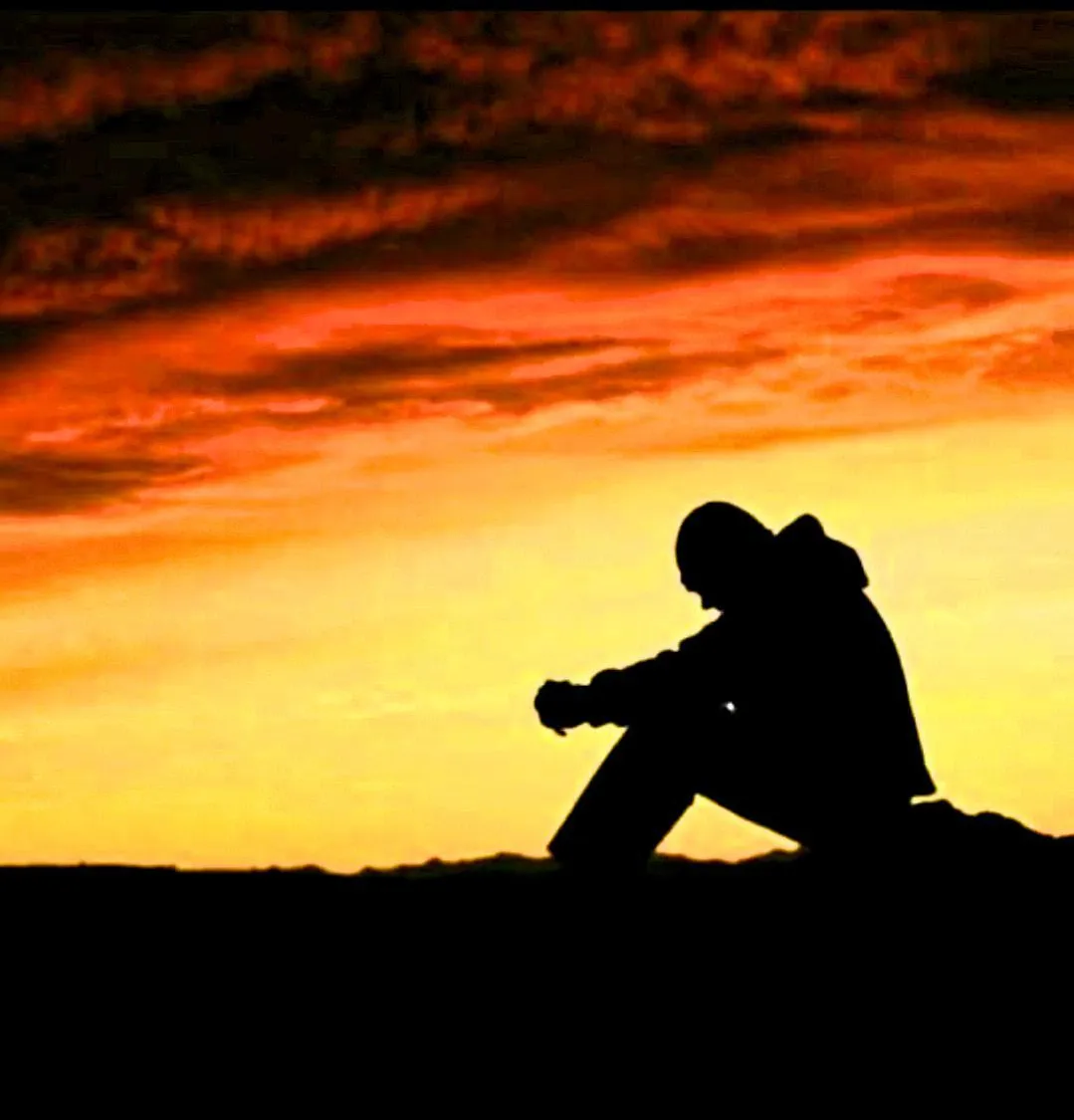
Wildlife guide, Happy
Wild Wings Safaris: "Tourism funds wildlife conservation. I don't think people realise how important visitors are to conservation efforts such as the protection of rhinos, for example. Now that tourism has dried up, what do you think the future of conservation in South Africa looks like?"
Frank Watts: "Private game reserves only source of income is from tourists. They aren't subsidized by the government so when the tourists stop coming, their income dries up. One way for them to generate an income is to start farming the land perhaps. That means the integrity of the environment and the preservation of wildlife is at stake. The wild bush our country is blessed with is paid for by tourism. Even the Kruger National Park, the only funds they receive from the government is for road maintenance. They support themselves through tourism. The importance of tourism cannot be overstated, not only for the safeguarding of our wild animals but in the country as a whole. I speak under correction, but if tourism isn't the biggest employer in the country, it's certainly one of the top employers. So as far as the economy of South Africa is concerned, the loss of jobs and the drop in revenue is staggering."
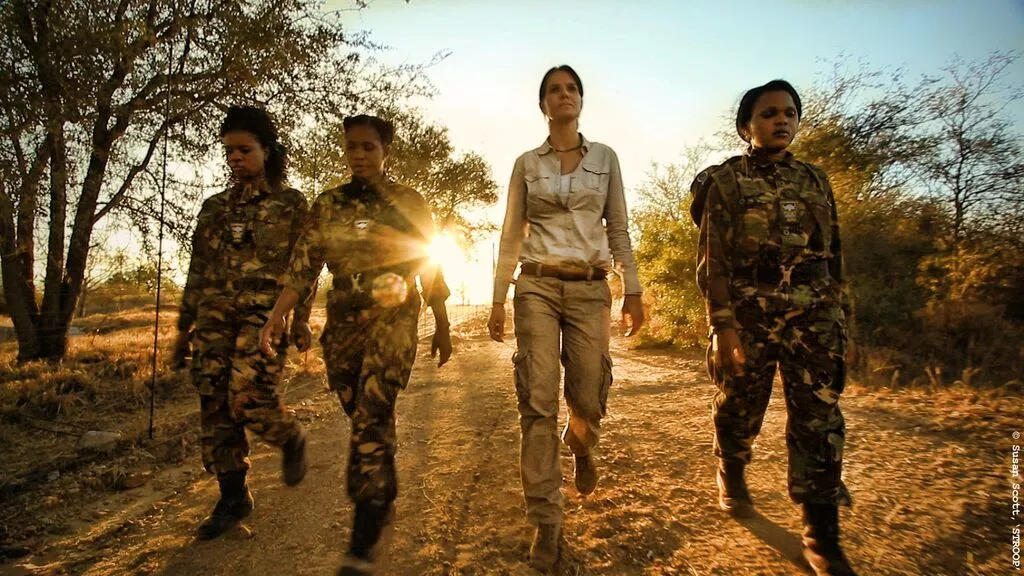
Anti-poaching units are funded by the proceeds from tourism and donations
Wild Wings Safaris: "You chose some interesting titles for each chapter in "Lockdown SA: Through the Eyes of a Nature Guide". Chapter One, for example, is called "The Enemy Has Landed." Who or what is the enemy?"
Frank Watts: "The coronavirus is our enemy. I'm a nature guide, not a novelist, but one thing I knew when this thing started was that we had one hell of a fight on our hands."
Wild Wings Safaris: "Chapter Two is called "Don't Do The Crime If You Can't Do The Time." What do you mean by that?"
Frank Watts: "I talk about what human beings are doing to the earth in that chapter. The disrespect we show to the only home we have and how this lockdown has seen nature recovering from the effects of pollution, for example. We've been committing grave injustices to Mother Nature and each other and I can't help but feel that it's payback time."
Wild Wings Safaris: "'Life Lessons' is the title of your third chapter. Can you share some lessons you've learned with us?"
Frank Watts: "When I was still new to guiding, I quickly became disillusioned by the endless supply of people I was taking on safari who weren't understanding what I was trying to tell them and weren't showing any level of appreciation for nature. I asked this old, African guide who'd been doing this for many, many years, "How do you keep doing this?". He gave me that smile only an African can give and said, "Don't watch the animals, Frank. Watch the people." And I embraced that. I've been watching people for the last thirty years and guiding according to their reactions. Watching my kids deal with the lockdown has also taught me a lot. Our daughter, Emily, asked us if she could move in with the family who owns the stables where she rides horses because all the grooms had to be sent home. Forty-four horses and nobody to look after them. The riding instructor, her husband and their heavily pregnant daughter took Emily in. Three adults and a fourteen-year-old girl. What could go wrong, right? But she got up every morning at five o'clock, Monday through Sunday. She carried bales of hay, groomed horses, cleaned stables. When I saw her again after ten days, the little girl we'd dropped off at the stables was gone. In her place was a young woman. The boy, Aidan, he's like this little ball of sunshine. He comes out of his room every morning with a big smile and when I see that and think about what Emily has accomplished, I have hope that they will be the ones to show us a way out of this."
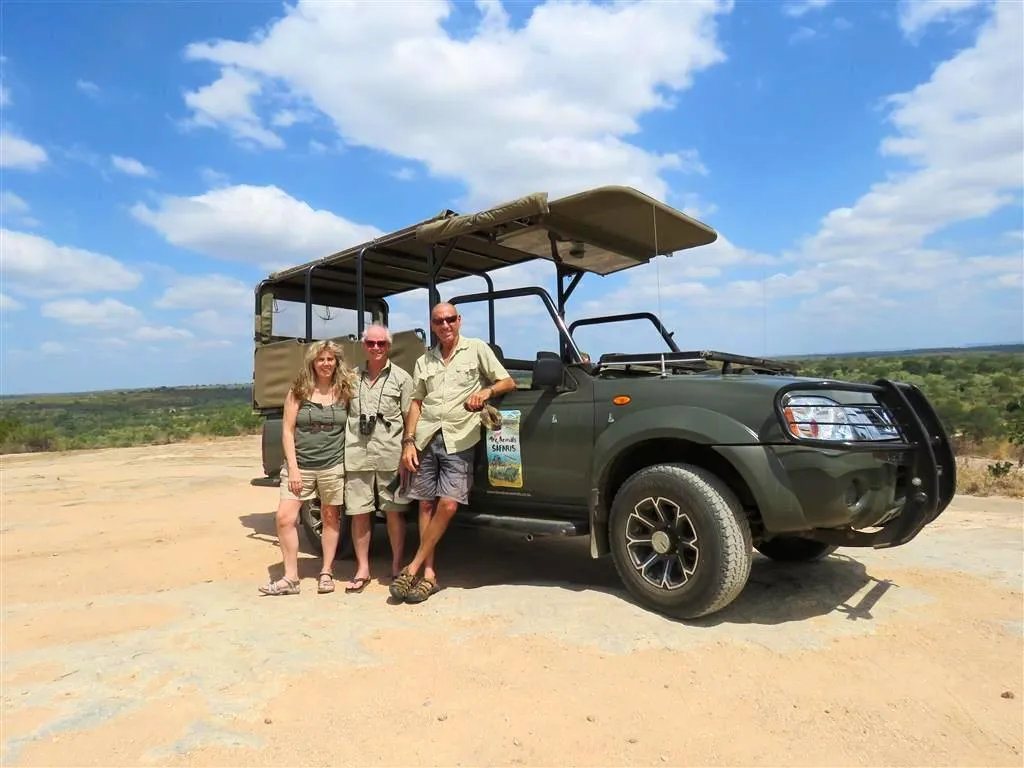
Frank Watts (right), nature guide and people watcher
Wild Wings Safaris: "Your final chapter is called "The Battle at Kruger". Is that a specific reference to the video that went viral thirteen years ago and put you on the map, or are you referring to something else altogether?"
Frank Watts: "Both. I briefly mentioned the video where I was witness to an incredible, once-in-a-lifetime wildlife event. But really, I just happened to be in the right place at the right time. Right now, we're in a battle of our own but no one's waiting to rush in and save us like the buffalo did when they saved their calf."
Wild Wings Safaris: "That's one of the most impressive scenes. It's phenomenal to watch that herd of buffalo marshal their numbers and attack as a unit to protect their own. Do you think human beings and specifically South Africans, working together as a family will be our saving grace?"
Frank Watts: "South Africans can take on anything if we stand together. We've seen it happen before. Do you remember how our country united when we won the Rugby World Cup in 1995? When Mr Ramaphosa gave his first speech about the lockdown, I felt that same sense of unity, but, to be honest, I'm a bit disillusioned. Not only because of the way our leaders have handled the lockdown but also because of how divided we are as a nation. The insults we're levelling at each other on social media? If we put that energy into standing together, we could get through this."
Wild Wings Safaris: "Final question, Frank. What's the first thing you're going to do when the lockdown is lifted?"
Frank Watts: "I'm going to drive into the Kruger National Park in my safari vehicle and I'm going to park at that very same waterhole I was sitting at when I heard the word “lockdown” for the first time. And I'm going to sit there and listen to the sound of prison cells unlocking across the country."
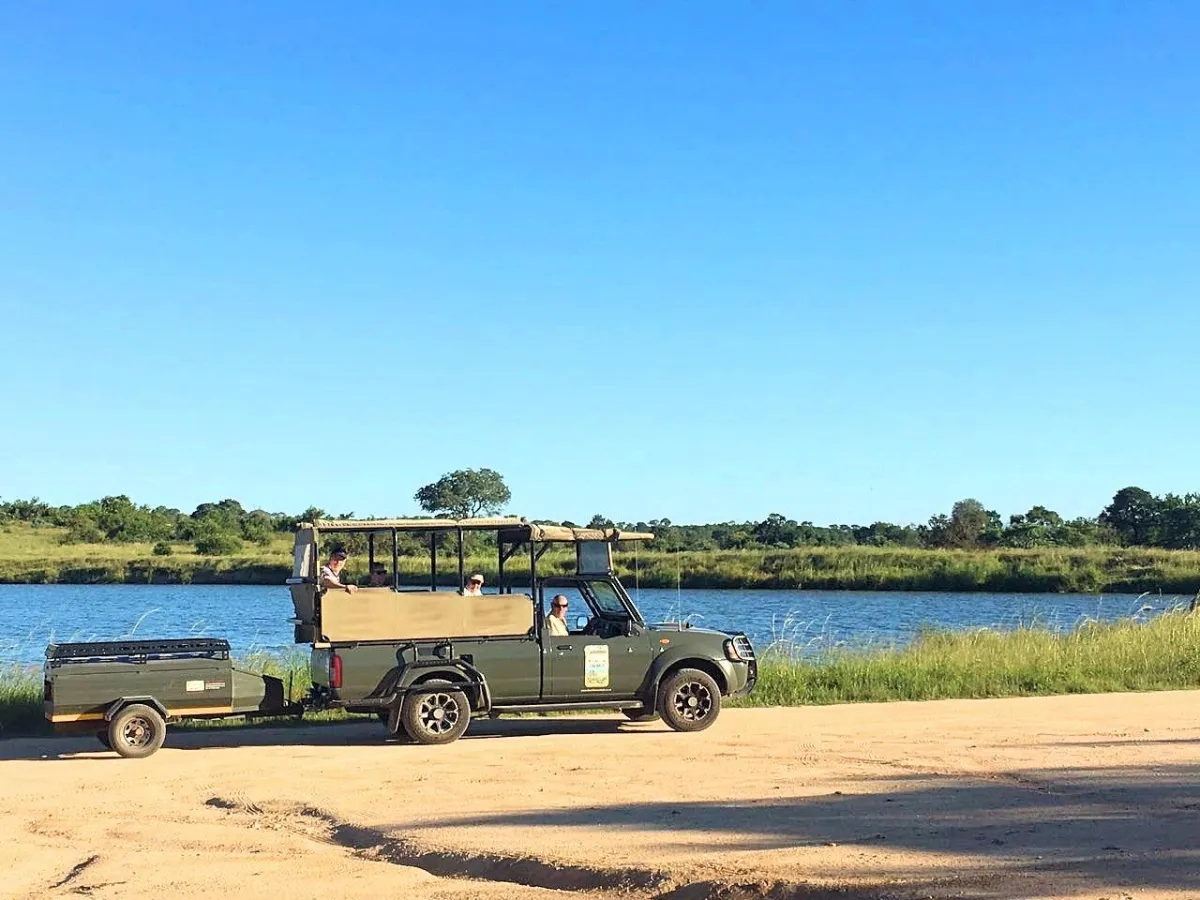
Frank Watts at the same waterhole where "Battle at Kruger" was filmed.
Our blog, Top 10 things you probably didn't know about Kruger National Park, contains a link to the famous Battle at Kruger video Frank spoke about in the interview.
About the author
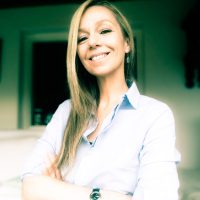
Dianne Kokkonidis was born in Johannesburg, grew up in the Transkei and spent years exploring Europe. She returned to South Africa to live on a farm in the Outeniqua Mountains when the call of Africa got too loud to ignore. She comes from a family of storytellers, so it's no surprise she's now found her way into writing about one of the oldest stories known to mankind - the lure of Africa.









